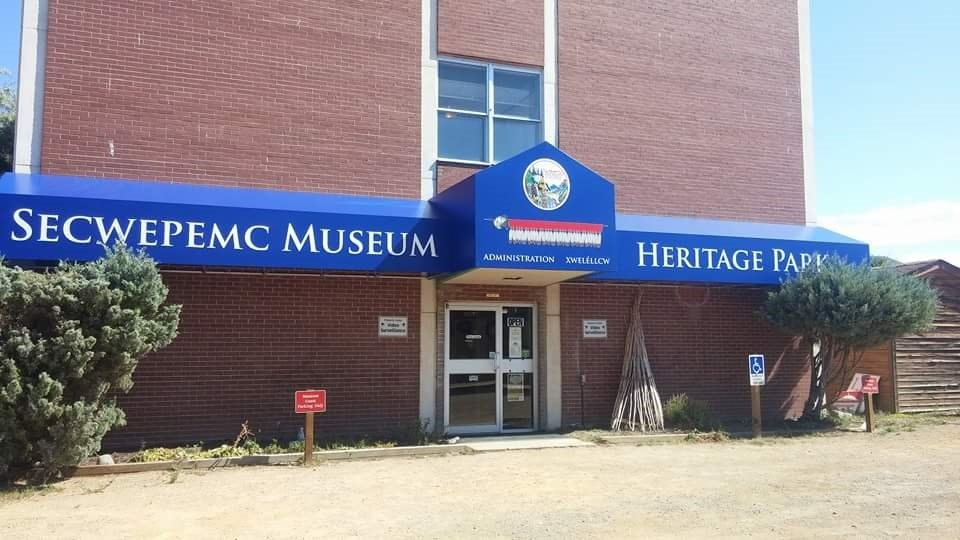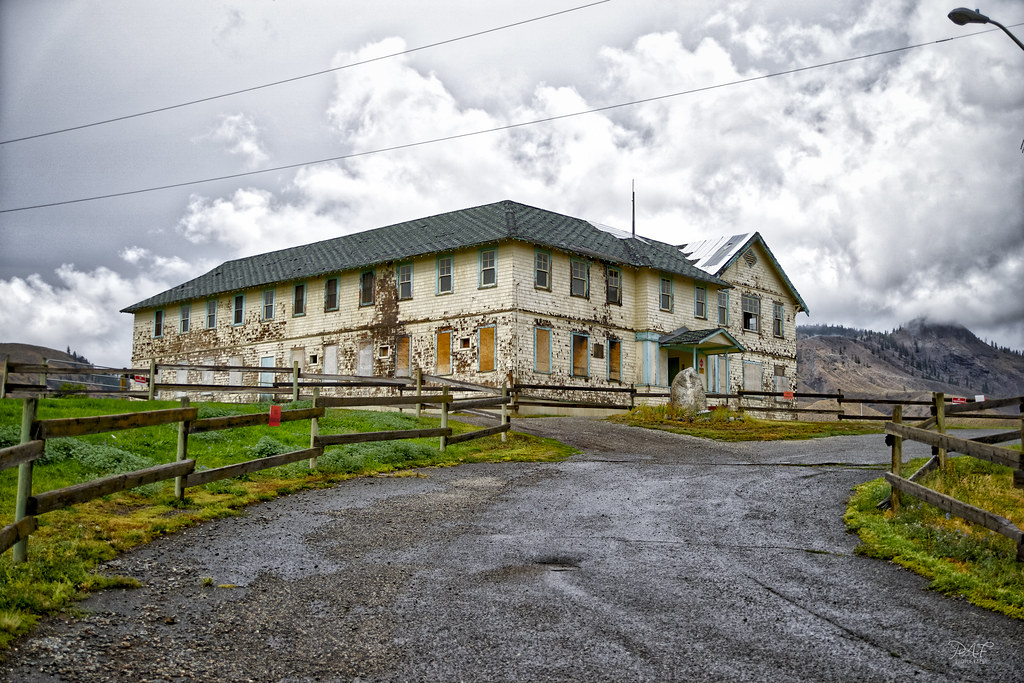Unveiling Kamloops' Rich Tapestry: Exploring Its Historical Gems
Introduction:
Nestled in the heart of British Columbia's interior, Kamloops is a city steeped in history and brimming with cultural heritage. From Indigenous settlements dating back thousands of years to the arrival of European fur traders and gold prospectors, Kamloops' past is woven into the fabric of its landscape. In this immersive journey through time, we'll uncover the hidden treasures and storied landmarks that chronicle Kamloops' fascinating history. Join us as we delve into the historical tapestry of Kamloops and discover the stories of the people and events that have shaped this vibrant city.
1. Secwépemc Museum & Heritage Park:
Embark on a captivating journey into the rich Indigenous heritage of the Secwépemc people at the Secwépemc Museum & Heritage Park. Located on the traditional territory of the Secwépemc Nation, this cultural institution offers a profound exploration of Indigenous history, art, and traditions. Visitors can wander through the museum's exhibits, which showcase artifacts, photographs, and interactive displays highlighting the Secwépemc way of life. Outside, the Heritage Park beckons with its replica kekulis (traditional underground homes), sweat lodge, and interpretive trails, providing insight into the spiritual and cultural practices of the Secwépemc people. Through storytelling and hands-on experiences, the Secwépemc Museum & Heritage Park offers a meaningful opportunity to connect with the land and the Indigenous communities that call it home.
2. Kamloops Museum & Archives:
Step into the past at the Kamloops Museum & Archives, where history comes alive through captivating exhibits and immersive experiences. Housed in a heritage building that once served as Kamloops' original courthouse, the museum offers a glimpse into the city's evolution from a humble fur trading post to a bustling urban center. Visitors can explore a diverse array of exhibits covering topics such as early exploration and settlement, the fur trade era, and the development of transportation and industry in Kamloops. Highlights include a replica stagecoach, vintage photographs, and artifacts from Kamloops' pioneer days. With its engaging displays and informative programming, the Kamloops Museum & Archives serves as a gateway to the city's storied past, preserving and sharing its heritage for future generations.
3. Tranquille Sanatorium:
Delve into the intriguing history of healthcare and tuberculosis treatment at the Tranquille Sanatorium, a hauntingly beautiful relic of Kamloops' past. Perched on the shores of Kamloops Lake, Tranquille Sanatorium was once a leading facility for the treatment of tuberculosis patients in British Columbia. Established in the early 20th century, the sanatorium operated for decades, offering fresh air, rest, and medical care to those afflicted with the "white plague." Today, the site stands as a fascinating testament to a bygone era, with its historic buildings, scenic surroundings, and lingering echoes of the past. Visitors can explore the grounds on guided tours, learning about the sanatorium's history, its patients, and the innovative treatments that were administered here. With its blend of history, architecture, and natural beauty, Tranquille Sanatorium offers a unique glimpse into Kamloops' medical history and the resilience of those who sought healing within its walls.
4. Kamloops Heritage Railway:
Experience the golden age of rail travel aboard the Kamloops Heritage Railway, a nostalgic journey through Kamloops' railway history. Climb aboard the restored steam locomotive known as the "Spirit of Kamloops" and embark on a scenic excursion through the city and surrounding countryside. As you chug along the historic Canadian Pacific Railway line, you'll be transported back in time to an era when railroads were the lifeline of communities across Canada. Along the way, knowledgeable guides share fascinating tales of Kamloops' railway heritage, from the construction of the transcontinental railway to the heyday of steam locomotion. Whether you're a history buff, a train enthusiast, or simply seeking a unique way to explore Kamloops, the Kamloops Heritage Railway offers an unforgettable journey through the sights, sounds, and stories of the past.
5. St. Andrews on the Square:
Immerse yourself in the architectural splendor and cultural heritage of St. Andrews on the Square, a historic landmark that stands as a symbol of Kamloops' enduring legacy. Nestled in the heart of downtown Kamloops, St. Andrews on the Square is a beautifully preserved heritage building that has been a focal point of community life for over a century. Originally constructed as a Presbyterian church in the late 19th century, the building has served various roles over the years, including as a concert hall, meeting space, and cultural center. Today, St. Andrews on the Square continues to host a variety of events and activities, from concerts and weddings to art exhibitions and community gatherings. With its stunning architecture, rich history, and vibrant cultural programming, St. Andrews on the Square stands as a testament to Kamloops' past and a beacon of inspiration for generations to come.
Conclusion:
As we conclude our journey through Kamloops' historical places, we've only scratched the surface of the city's rich tapestry of heritage and culture. From Indigenous landmarks to pioneer sites, from architectural gems to immersive experiences, Kamloops offers a wealth of opportunities to explore its past and connect with the stories of those who have shaped its history. Whether you're a history buff, a cultural enthusiast, or simply curious about the world around you, Kamloops invites you to discover its fascinating heritage and embark on a journey through time. So, the next time you find yourself in this vibrant city, be sure to set aside some time to explore its historical treasures and uncover the secrets of its past.
Unveiling the Importance of Functional Capacity Evaluation in Medical-Legal Assessments
Introduction:
Functional Capacity Evaluation (FCE) is a crucial component of medical-legal assessments, providing valuable insights into an individual's physical capabilities and limitations. At Creative Therapy Consultants (CTC), we recognize the significance of FCE in accurately assessing an individual's functional abilities in the context of legal proceedings. In this article, we will delve into the key aspects of Functional Capacity Evaluation, its importance in medical-legal assessments, and how CTC utilizes FCE to support clients and legal professionals.
1. Understanding Functional Capacity Evaluation:
Functional Capacity Evaluation is a comprehensive assessment conducted by trained professionals to evaluate an individual's physical and functional abilities about their job demands, activities of daily living, or specific tasks. During an FCE, various tests and measurements are employed to assess strength, endurance, flexibility, mobility, and functional movement patterns. These assessments provide objective data regarding an individual's capacity to perform work-related tasks or activities without exacerbating their condition or risking injury.
2. Importance of Functional Capacity Evaluation in Medical-Legal Assessments:
In the realm of medical-legal assessments, Functional Capacity Evaluation plays a pivotal role in providing objective evidence regarding an individual's functional abilities and limitations. This information is invaluable in cases involving personal injury claims, disability determinations, workers' compensation claims, and other legal proceedings. By conducting an FCE, healthcare professionals can provide courts, insurers, and legal representatives with accurate and unbiased assessments of an individual's physical capabilities, helping to inform decisions regarding compensation, rehabilitation, and disability accommodations.
3. Utilizing Functional Capacity Evaluation at Creative Therapy Consultants:
At Creative Therapy Consultants, we specialize in conducting thorough and objective Functional Capacity Evaluations to support our clients and legal partners. Our team of experienced therapists utilizes evidence-based assessment protocols and state-of-the-art equipment to gather comprehensive data regarding an individual's functional capacity. Through a combination of standardized tests, functional assessments, and clinical observations, we provide detailed reports outlining an individual's physical abilities, restrictions, and recommendations for rehabilitation or accommodation.
4. Components of Functional Capacity Evaluation:
During a Functional Capacity Evaluation at CTC, several components are typically assessed to provide a comprehensive understanding of an individual's functional abilities. These may include:
- Physical Strength: Assessing the individual's ability to lift, carry, push, and pull objects of varying weights.
- Endurance: Evaluating the individual's capacity to sustain physical activity over time without excessive fatigue.
- Range of Motion: Assessing flexibility and mobility in joints and muscles to determine functional limitations.
- Functional Movement Patterns: Observing the individual's ability to perform specific tasks relevant to their job or daily activities.
- Pain Assessment: Documenting the presence and severity of pain during functional tasks and activities.
5. Benefits of Functional Capacity Evaluation:
Functional Capacity Evaluation offers numerous benefits in the context of medical-legal assessments, including:
- Objective Data: FCE provides courts and legal professionals with objective, quantifiable data regarding an individual's functional abilities and limitations.
- Informed Decision-Making: FCE results help inform decisions regarding disability determinations, return-to-work planning, rehabilitation, and compensation.
- Rehabilitation Planning: FCE identifies areas of strength and weakness, guiding the development of tailored rehabilitation programs to improve functional outcomes.
- Legal Documentation: FCE reports serve as valuable documentation in legal proceedings, providing clear and concise summaries of an individual's functional capacity.
Conclusion:
In conclusion, Functional Capacity Evaluation plays a vital role in medical-legal assessments, offering objective insights into an individual's physical abilities and limitations. At Creative Therapy Consultants, we recognize the importance of FCE in supporting our clients and legal partners in navigating complex legal proceedings. Through comprehensive assessments and evidence-based practices, we strive to provide accurate and reliable FCE reports that assist in informed decision-making and facilitate the pursuit of justice for individuals involved in legal matters.
Creative Therapy Consultants
292 4 Ave, Kamloops, BC V2C 3N5, Canada
+1 236–422–4778
https://www.creativetherapyconsultants.ca/






Comments
Post a Comment